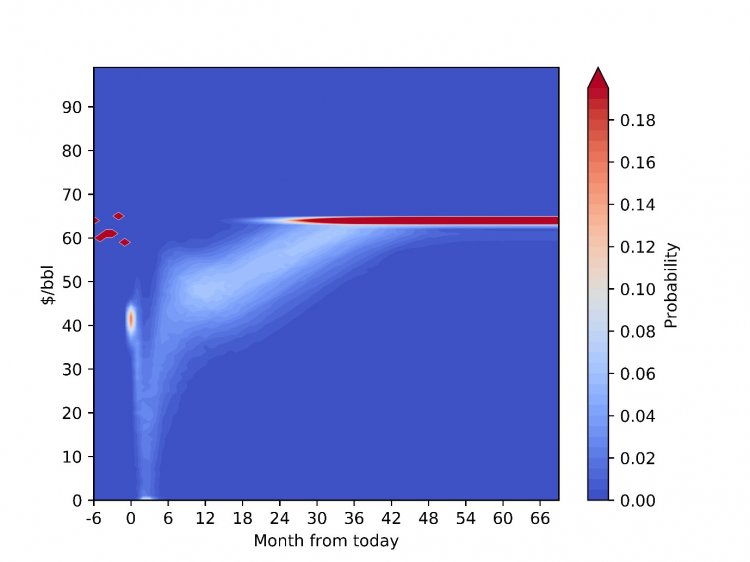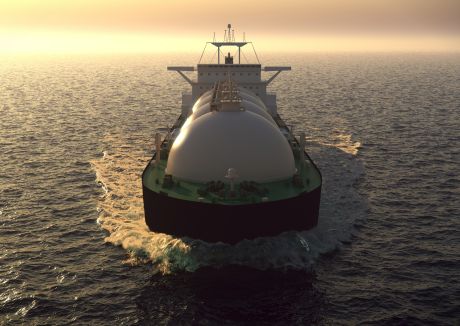The energy markets are undergoing an undoubtedly unprecedented series of shocks. In the face of a barrage of increasingly discouraging news and in truly chaotic times, it is easy to fall into the trap of deeming an uncertain future impossible to analyse, and to let uncertainty be an excuse for inaction.
The truth is that, even in the most chaotic of settings, it is possible to use analytical tools to separate the signal from the cacophony of market noise. In fact, crises don’t carry with them the requirement to drop all analytics at once for fear of making wrong predictions. If anything, they ask of people to really make the most of the analytical tools at their disposal and of all their capabilities to process the information available, however fast changing it might be.
There are three main elements that all analytical approaches to chaotic settings must have:
- Flexibility of assumptions and the ability to embed uncertainty into them
- Ability to analyse large ensembles of scenarios
- Ability to turn qualitative information into a quantification of risk
The first point is obvious. If the world around you keeps changing, make sure your analysis is as nimble and flexible as possible, to ensure you are always representing the world as it is now, not as it was a week or a month ago, which may very well be irrelevant. Also, uncertainty must not be avoided, but embraced, broken down, owned. If faced with a situation where nothing is certain, assumptions must be made statistical, and one must not search for an exact forecast, but rather to distinguish the absurd from the probable, to look for a glimmer of possibility that might otherwise have gone missed.
Secondly, chaotic times require the ability to analyse not a handful of scenarios, but fully embrace the thousands of possibilities that might lie ahead. Anything less runs the risk of being superficial and insufficient to understand the complexity of the future.
Lastly, one must not shy away from using all the information available for a quantitative analysis, even those that might seem purely qualitative, and be aware of their potential for delivering key insights. Analytical work requires first and foremost the ability to distill all information available and to understand the importance of approximations and simplifications when they are needed.
Overall, being analytical doesn’t prevent creativity, but it must help channeling creative thought in the most productive directions, and vice-versa creative thought must be turned into valuable inputs to quantitative models. Analytical thinking, when done properly, will never prevent the development of new ideas and solutions, but will encourage it.
At Gas Strategies, this thinking is a fundamental element to the way in which we are helping our clients chart a way through these times of unprecedented chaos in energy and financial markets. A recent example of this is interpreting the fast and volatile developments through a Monte Carlo model capable of turning our oil market knowledge into tens of thousands of possible recovery paths for the oil price from the lows seen this week. Figure 1 shows an example output of the model, analyzing the combination of a potential set of supply and demand shocks. This has allowed us to clearly quantify the impact of potential shocks to improve our understanding of the high levels of uncertainty, as well as being concrete and quantitative in our approach to the crisis.
Figure 1 – Probability distribution of 10,000 paths for oil prices in the next five years
The most important point, though, is recognizing that this is not the right answer, nor the final answer. There can be no such things in times as chaotic as these. What it allows us, though, is to distil the impact of all events, from the predictable to the unforeseen. As well as these tools serving the purpose of charting uncertainty, they help to highlight risk or dispel fear when necessary.
In the end, if one is forced to make a gamble, it is worth remembering that no gambler would make a bet without knowing the odds first.
***
If you would like more information about how Gas Strategies can help your business with Consulting services across the value chain or provide industry insight with regular news, features and analysis through Information Services or help with people development through Training Services, please contact us directly.









